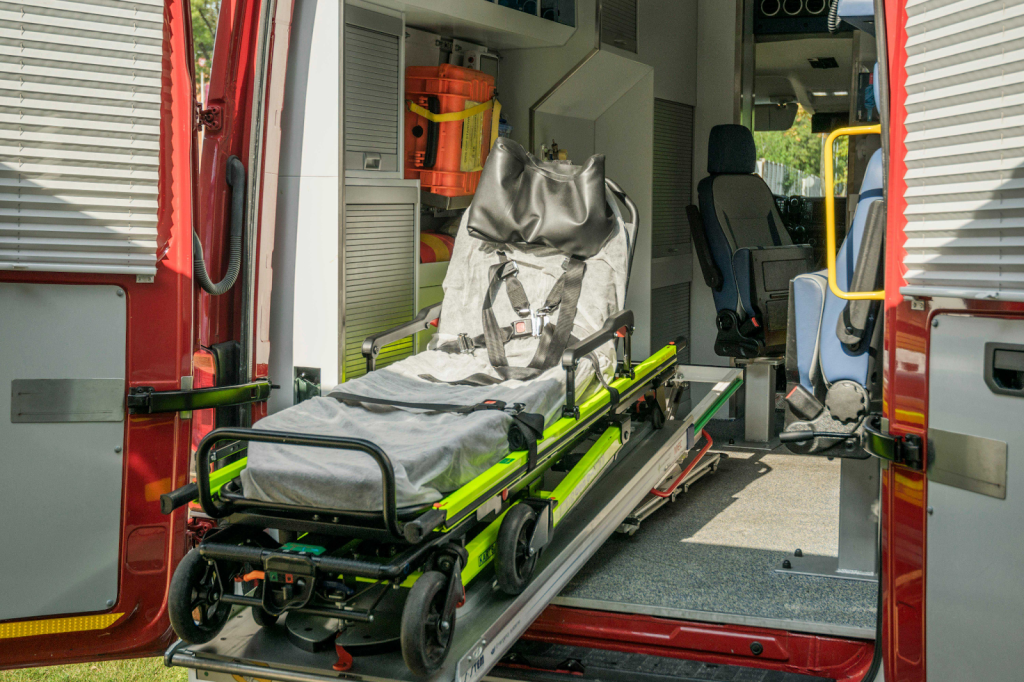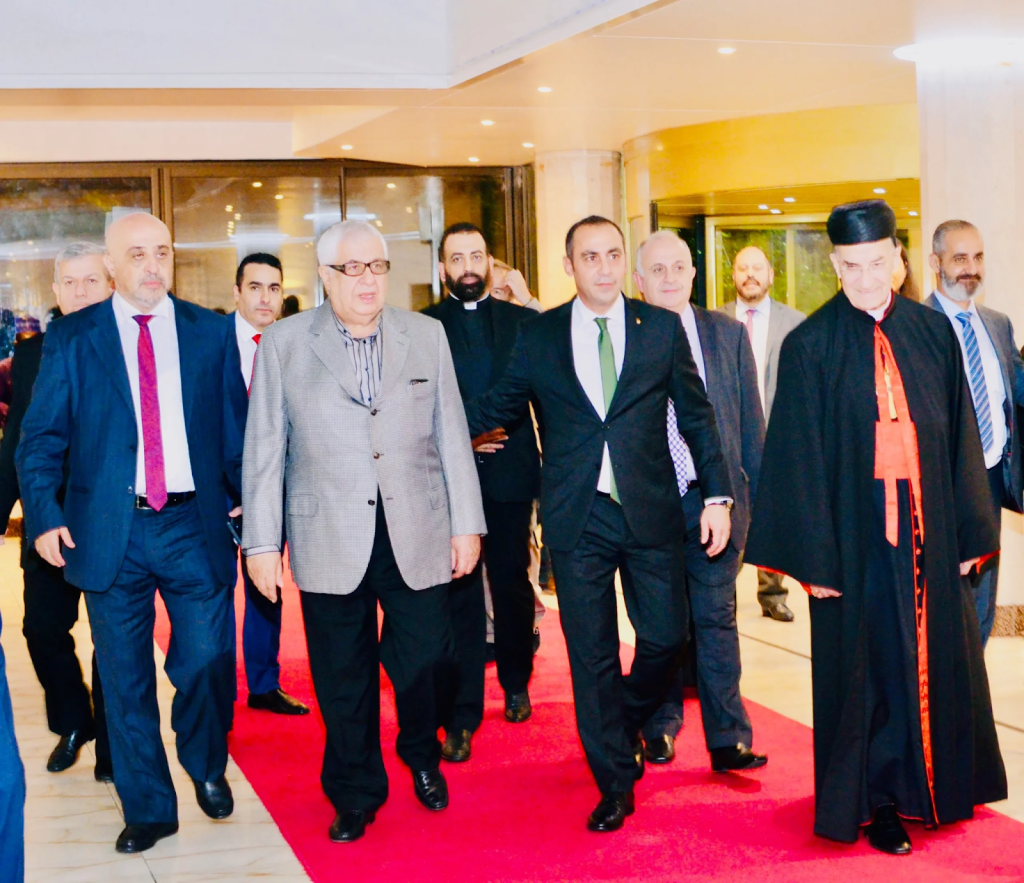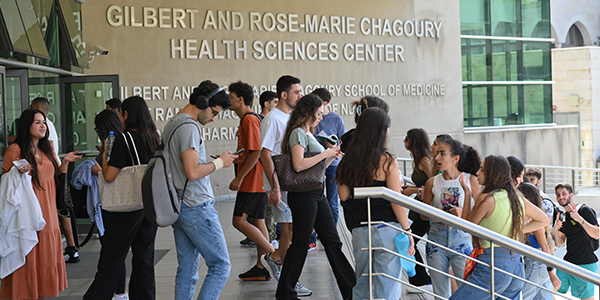Global health continues to face urgent challenges. From the spread of infectious diseases to weak health infrastructure, millions remain without reliable care. In many underserved regions, hospitals are overcrowded, and medical professionals are few. These conditions demand more than an emergency response. They require strategic health initiatives that create lasting change.
Gilbert Chagoury, a global businessman and philanthropist, has taken a proactive role in addressing these issues. His work in the health sector focuses on real impact. Through large-scale donations, hospital development, and educational investments, he supports projects that reach deep into communities. The aim is not just treatment, but transformation. His health initiatives serve both immediate needs and long-term public health goals.
This blog explores the full scope of Chagoury’s contributions to health initiatives across Africa and the Middle East. From the Lebanese American University’s Health Sciences Center to mobile testing units and infrastructure upgrades in Nigeria, each section highlights how these efforts improve lives. With real data, global partnerships, and measurable results, the Chagoury model offers a blueprint for philanthropy that builds healthier futures.
The Legacy of Gilbert Chagoury in Healthcare Development
Gilbert Chagoury’s philanthropic work in healthcare goes beyond one-time donations. He believes that long-term investments build stronger health systems. His vision focuses on education, access, and sustainability. This approach continues to influence modern health initiatives in Africa and the Middle East.
One of his most significant contributions is the Chagoury Health Sciences Center at the Lebanese American University (LAU). This facility supports the training of future doctors, nurses, and pharmacists. It includes research labs, training centers, and academic spaces. These tools help students become skilled professionals who can serve their communities.
Chagoury also funds hospitals and clinics. His support improves critical care services and expands medical access in underserved regions. These health initiatives help reduce pressure on local systems and create long-term value for communities.
Key Features of His Healthcare Model
- Focus on education and capacity building
- Investment in modern medical facilities
- Long-term public-private partnerships
- Emphasis on sustainability and impact measurement
Building Capacity: The LAU Health Sciences Center

The Chagoury Health Sciences Center at the Lebanese American University (LAU) is one of Gilbert Chagoury’s most impactful health initiatives. Located on the Byblos campus, this state-of-the-art facility was made possible by a generous $13.5 million donation, making it a transformative investment in Lebanon’s healthcare future. It plays a vital role in shaping the next generation of healthcare professionals in Lebanon and the wider Middle East.
Training for the Future
Opened in 2013, the center spans 15,500 square meters across seven floors. It houses classrooms, simulation labs, clinical training spaces, research facilities, and faculty offices. The entire structure is built with advanced technology to support hands-on learning. Students in medicine, nursing, and pharmacy receive real-world training in a controlled environment, ensuring they are prepared for modern medical challenges.
This building is not just a facility. It is a learning ecosystem. LAU’s health sciences programs rank among the best in the region because of the investment in academic infrastructure. These programs offer degrees that are internationally accredited, making graduates highly competitive on the global stage.
The integration of education and healthcare access is central to Chagoury’s vision. By funding the LAU Health Sciences Center, he has helped expand Lebanon’s healthcare workforce. Every year, hundreds of students graduate ready to serve their communities and drive new health initiatives.
Long-Term Regional Impact
The impact of this center is not limited to LAU. Its reach extends throughout Lebanon and the Middle East. Many graduates now lead clinics, hospitals, and community health programs in rural and urban areas. The facility also encourages research on regional health issues, including refugee health, chronic disease management, and maternal care.
These efforts support long-term public health goals. They improve healthcare delivery while promoting social mobility through education. This aligns with global strategies that emphasize the importance of local solutions to global health problems.
How the Center Supports Broader Health Initiatives
- Trains more than 1,200 healthcare students annually
- Hosts international medical research collaborations
- Equips future doctors, nurses, and pharmacists with modern clinical skills
- Acts as a model for academic-medical partnerships in developing regions
The LAU Health Sciences Center remains a core pillar in Chagoury’s approach to healthcare philanthropy. It strengthens systems, prepares talent, and helps build a more resilient and responsive health sector.
Expanding Access: Health Infrastructure Projects in West Africa
Chagoury’s health initiatives go beyond education. He has also invested in infrastructure development that brings healthcare to people who need it most. This includes building hospitals, clinics, and support systems in several African countries, particularly Nigeria and Togo.
Health Infrastructure in Nigeria
In Nigeria, health access remains a critical issue. Many rural communities lack fully equipped hospitals or trained staff. Chagoury’s response includes building and upgrading healthcare facilities in these regions. His projects focus on accessibility, durability, and long-term service.
One major contribution is the construction of new medical centers and diagnostic labs across Lagos, Enugu, and Kano. These facilities offer essential services such as emergency care, maternal health, and infectious disease testing. By placing clinics closer to remote populations, these health initiatives reduce travel time and save lives.
The group also funds hospital renovation projects. This includes supplying modern equipment and training medical staff on-site. These investments support quicker diagnoses, better patient outcomes, and stronger community trust in public health systems.
Public-Private Partnerships for Greater Reach
Chagoury’s infrastructure projects often involve public-private partnerships (PPPs). These allow governments and private donors to combine efforts and share expertise. By working directly with health ministries and local leaders, his team ensures each project fits the local context.
These partnerships have allowed for:
- Faster construction timelines
- Better facility management
- Expanded health coverage for low-income populations
- Access to pharmaceutical storage and distribution hubs
This model has proven successful in both urban and rural settings. It enhances health systems by filling critical gaps that government budgets alone cannot cover.
Togo: Road Access and Healthcare Connectivity
In Togo, Chagoury’s company, Hitech Construction, recently joined a project with the NGO Miawodo to rehabilitate National Route 14. While not a hospital project, this initiative improves access to care by linking remote communities with regional health centers. It is part of a broader strategy to improve health mobility, which remains a major barrier to treatment in West Africa.
Improving health infrastructure is not just about buildings. It also involves the roads, systems, and logistics that connect people to care. Chagoury’s health initiatives understand this bigger picture and take action at every level.
Emergency Response and Mobile Health Solutions

Not all healthcare needs happen in hospitals. Emergencies, outbreaks, and mobile populations require flexible and fast solutions. Chagoury’s health initiatives recognize this reality. That’s why he supports emergency medical infrastructure and mobile health systems across high-risk regions.
Rapid Deployment in Crisis Zones
In Nigeria and neighboring countries, disease outbreaks and conflict zones create immediate health crises. Chagoury-backed companies have helped local governments respond by providing temporary clinics, mobile labs, and transportable diagnostic equipment. These systems are crucial in regions with poor access to permanent medical infrastructure.
Mobile health units are particularly effective for rural outreach. These vans or container-based clinics bring doctors and nurses to remote villages, cutting travel time for patients and increasing early disease detection. Some units even include maternal health equipment and rapid testing tools, which are essential during outbreaks.
Supporting Emergency Operations
Chagoury’s team also partners with local emergency response agencies. These partnerships provide:
- Medical tents and mobile field hospitals
- Emergency generator and water purification systems
- Telehealth support to connect with urban specialists
- Logistics and distribution for vaccines and medications
These tools allow health workers to set up treatment areas within hours. This rapid response model helps prevent disease spread, lowers fatality rates, and supports government disaster relief efforts.
Technology-Driven Outreach
In several pilot regions, the Chagoury Group funds digital solutions for public health. This includes mobile health apps, SMS-based vaccination reminders, and AI-powered diagnostic tools in underserved clinics. These tools increase efficiency, reduce paperwork, and provide real-time health data to decision-makers.
By merging innovation with compassion, Chagoury’s health initiatives show that even large-scale problems can be solved with thoughtful design. Whether through mobile outreach or emergency medicine, the group continues to fill critical gaps in healthcare delivery.
Collaborations with Global Health Institutions
Partnership is a core part of how Chagoury’s health initiatives succeed. His philanthropic mission aligns with the work of major global health players. By teaming up with institutions like the World Health Organization (WHO), International Medical Corps, and various local ministries of health, the Chagoury Group ensures that its efforts are supported by science, policy, and field-level insight.
Aligning with WHO and Regional Ministries
Chagoury-funded hospitals and programs often follow WHO guidelines. From infection prevention to maternal health, every system is built to meet international standards. This ensures not only quality of care but also cross-border coordination during pandemics and public health emergencies.
In Nigeria, several programs supported by the Chagoury Group are monitored or co-managed by state and federal health ministries. This cooperation strengthens vaccination drives, child health services, and chronic disease outreach. Health professionals trained in these environments are equipped with up-to-date practices and ethical care standards.
These collaborations help raise the baseline of care. They also increase local ownership and continuity once the initial funding ends.
Academic and Nonprofit Partnerships
Chagoury’s health initiatives also benefit from academic and nonprofit partnerships. Some notable examples include:
- Lebanese American University (LAU): Provides global medical education tied to Chagoury’s academic health centers.
- International Medical Corps (IMC): Partners on emergency health delivery in conflict-affected zones.
- Doctors Without Borders (MSF): Shares logistic resources and personnel in overlapping mission areas.
- UNESCO and UNICEF: Coordinate child health and education integration in select pilot regions.
These partnerships make every project more sustainable. They introduce accountability, performance metrics, and wider networks of talent and supplies. By investing in strategic allies, Chagoury ensures that his contributions have reached beyond borders.
Standardizing Excellence Across Regions
Every successful health initiative is backed by process. That includes training, monitoring, and continuous quality improvement. With the help of global institutions, Chagoury’s health systems evolve and adapt. The use of digital health records, maternal care dashboards, and cross-border epidemiology tools ensures that his projects meet international benchmarks.
In effect, these collaborations build scalable models. They can be replicated from Nigeria to Lebanon to other parts of Africa. The vision is not to solve one local problem but to lay the foundation for healthier communities across entire regions.
Measurable Outcomes of Chagoury’s Health Initiatives

Philanthropy is most powerful when it delivers clear, measurable results. Chagoury’s health initiatives do just that. Across multiple countries, his projects show long-term improvements in healthcare access, quality, and outcomes. These impacts are supported by both internal reports and third-party evaluations.
Improved Access to Health Services
One of the most visible outcomes is improved health coverage. In areas where Chagoury-funded clinics have opened, patient travel time has dropped by more than 50 percent. This means people can reach care faster, leading to quicker diagnoses and better recovery rates.
Mobile health units have extended this reach even further. In northern Nigeria, these vans serve over 80 rural communities each month. Many patients, especially women and children, receive their first-ever checkups through these visits.
Additionally, the Chagoury Health Sciences Center in Lebanon has trained over 2,000 medical professionals since opening. These graduates now serve in hospitals and clinics across the Middle East and Africa.
Increased Medical Capacity
Capacity is about more than just buildings. Chagoury’s investments have increased:
- The number of inpatient beds in underserved regions
- Diagnostic capacity through new labs and imaging centers
- Access to clean water, power, and medical-grade oxygen
- Recruitment and retention of skilled health workers
In Lagos, for example, hospitals supported by the Chagoury Group saw a 40 percent increase in their annual patient load. This growth did not compromise the quality of care. Instead, it strengthened the ability of local health systems to handle both emergencies and everyday needs.
Health and Economic Benefits
Good health supports strong economies. Communities with better healthcare see higher school attendance, increased productivity, and lower maternal and infant mortality. Chagoury’s health initiatives have helped reduce preventable disease rates in the regions they serve.
In 2023 alone, vaccination campaigns coordinated with the help of Chagoury-funded logistics reached over 500,000 children. In some districts, measles cases dropped by 60 percent. These are tangible wins that show how private philanthropy can improve public health.
Beyond health, these initiatives also create jobs, attract skilled workers, and support local supply chains. Each of these outcomes contributes to long-term community resilience.
The Future of Chagoury’s Global Health Work
Gilbert Chagoury’s legacy is far from complete. His health initiatives are evolving to meet new challenges. As global healthcare demands shift, the focus now moves toward innovation, technology, and deeper international partnerships. These efforts aim to reach more people, improve long-term impact, and future-proof the systems already in place.
At the heart of this expansion is a commitment to digital health, education, and climate-resilient infrastructure. These pillars guide the next wave of investments and philanthropy under Chagoury’s leadership. The ultimate goal is to build health systems that are adaptable, inclusive, and self-sustaining.
Countries across Africa and the Middle East are watching closely. Chagoury’s model has shown what is possible. Now, it is poised to grow further and inspire similar initiatives in regions still underserved.
Embracing Digital Health Innovation
Digital tools will play a large role in Chagoury’s future health initiatives. These innovations include:
- Electronic medical records (EMRs) to improve patient tracking
- Mobile diagnostics for remote and underserved regions
- Telemedicine for primary care and mental health services
- AI-based analytics to improve disease prediction and resource allocation
By introducing these systems, clinics can run more efficiently. Patients receive faster care. And governments get better data to plan services. These upgrades support transparency, efficiency, and stronger outcomes.
Investing in Health Education and Leadership
Training the next generation remains a top priority. Plans are in motion to:
- Expand scholarships at the Chagoury Health Sciences Center
- Build regional partnerships with African medical universities
- Launch leadership fellowships in public health policy and administration
These programs ensure that local professionals are empowered to lead. When communities manage their own systems, long-term success becomes more likely.
Climate and Crisis Resilience
New facilities and expansions will also be designed with climate resilience in mind. This includes:
- Green building certifications for new hospitals
- Solar-powered clinics in off-grid areas
- Water recycling systems to reduce waste
- Crisis response hubs for rapid deployment in emergencies
Health infrastructure must withstand natural disasters, supply chain disruptions, and political conflict. Chagoury’s next phase in global health will be prepared for these realities.
Supporting Emergency Health Initiatives During Crises
Beyond long-term infrastructure, Chagoury’s support extends to urgent public health responses. One notable example is the LAU mobile clinic, which played a critical role during the COVID-19 pandemic. As part of the university’s outreach, the clinic offered free PCR testing across Lebanon, giving underserved communities access to reliable diagnostics at a time when testing was scarce and costly.
This initiative, supported by the Chagoury-funded health sciences programs, helped bridge healthcare gaps during a national crisis. The mobile unit provided services in both urban and remote areas, demonstrating how adaptable and community-centered healthcare delivery can save lives during emergencies.
Chagoury’s health initiatives are not only about building facilities. They also focus on responsiveness, ensuring that healthcare reaches people wherever and whenever it is needed most.
A Model for Sustainable Health Initiatives
Gilbert Chagoury’s work shows that philanthropy can create lasting change when it is focused, local, and driven by results. His health initiatives are not just generous efforts. They are carefully planned solutions that uplift communities and strengthen entire health systems.
Whether through hospitals, training programs, or research centers, Chagoury has invested in people and infrastructure. His projects empower local leaders, provide jobs, and improve access to quality care. These are not quick fixes. They are long-term foundations for healthier futures.
As new global health challenges emerge, the world will need more leaders like Chagoury. His model of strategic, scalable, and socially responsible giving sets a clear example for others to follow. When health initiatives are backed by vision and execution, they can create a future where quality care is not a privilege, but a basic right.
Discover More About Chagoury’s Health Mission

Gilbert Chagoury‘s contributions to global health deserve deeper attention. If you are interested in understanding how private philanthropy can contribute to the public good, now is the time to explore this further. Visit the Chagoury Health Sciences Center at LAU to see how education meets medical excellence. Follow the Chagoury Group‘s updates to stay informed about their growing impact on healthcare infrastructure across Africa and the Middle East.
Learn how public-private partnerships are changing lives on the ground. By sharing these efforts and supporting similar health initiatives, you contribute to a movement that is building a stronger, more equitable global health system.
